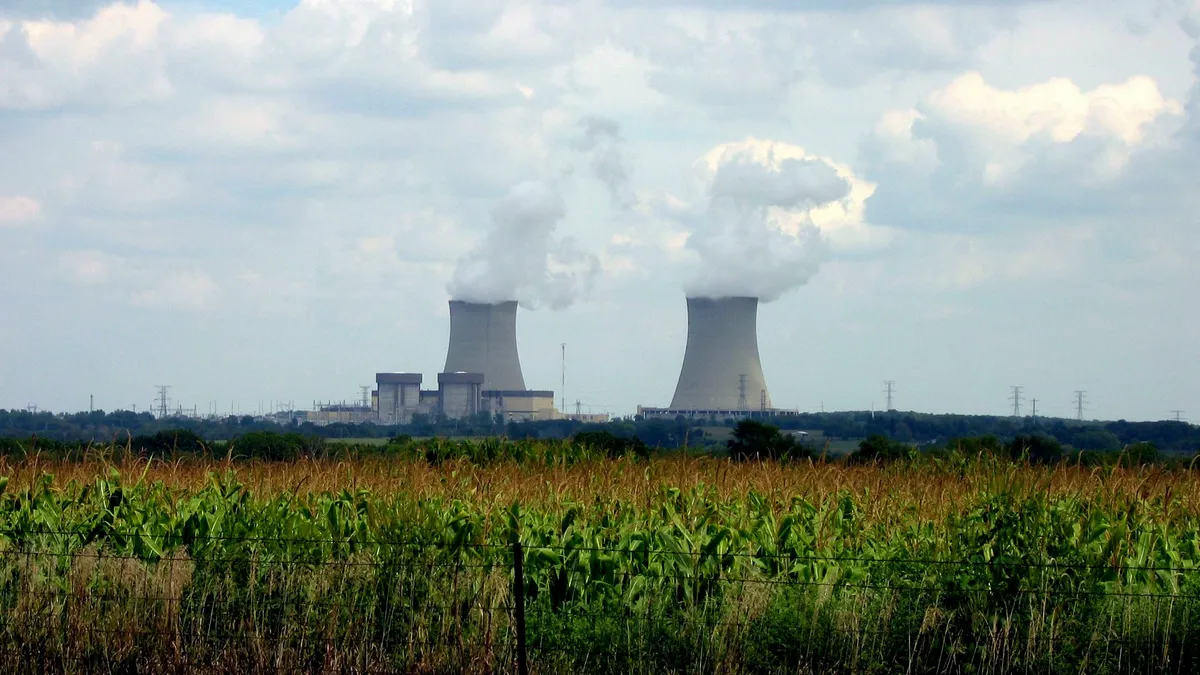Dive Brief:
- Exelon subsidiary ComEd agreed to enter a three-year deferred prosecution agreement and pay a $200 million fine based on a single bribery charge related to a long-running scheme in Illinois.
- On Friday, the utility admitted in an agreement with federal prosecutors to arranging jobs, monetary payments and subcontracted work for "various associates of a high-level elected official in the state of Illinois" from 2011 to 2019. ComEd may not recover the fine through its rate base. The utility will have to pay through its shareholders.
- The agreement relates only to ComEd, does not extend allegations of misconduct to Exelon and "resolves the government's investigation" into both companies, according to a statement from ComEd. Advocacy group Public Citizen maintains that Exelon needs to face greater consequences for the bribery charge of its Midwest subsidiary.
Dive Insight:
According to Public Citizen, Exelon should not be able to continue its participation in any regional transmission organization over the three-year period of ComEd's deferred prosecution agreement "given the credible allegations" from the federal criminal investigation.
Public Citizen is filing an official complaint with PJM Interconnection on Monday, regarding Exelon's membership and voting privileges during the three-year period, according to Tyler Slocum, Public Citizen's Energy Program director.
PJM has not responded regarding the implications of the federal criminal investigation on Exelon's voting rights. A ComEd spokesperson reiterated that the misconduct did not extend to Exelon.
"Right now, the stench of Exelon is so severe that if Exelon plays any role whatsoever in decisionmaking at PJM, that reflects really poorly on PJM, and PJM should acknowledge that and take affirmative action in the form of banning Exelon from having any participation in PJM for the next three years," Slocum told Utility Dive.
The U.S. Attorney's Office conducted a criminal investigation and received cooperation from ComEd, leading to a three-year deferred prosecution agreement based on the conduct of past and current employees.
Deferred prosecution agreements — which may be rare in the utility sector but not on Wall Street — are typically used as a way to provide accountability for corporate misdeeds, according to a Public Citizen report from last fall. Public Citizen has argued that deferred prosecution agreements are a "pathetic enforcement tool" and should be banned.
The charges will be dropped if ComEd meets certain conditions and pays $200 million. If the company does not completely perform or fulfill its obligations to the U.S. in the next three years or violates the agreement, it could face an additional fee between $240 million and $480 million.
"$200 million is not a sanction for that kind of deplorable behavior. There has to be consequences for engaging in egregious conduct, and taking [away] any sort of rights or privileges at PJM would be a great start," Slocum said.
ComEd agreed to changes within the organization, including a new head of oversight for the company: a vice president of compliance and audit. The utility agreed to remediation activities, including new policies for interacting with public officials and prohibiting the use of third-party lobbyists.
"What ComEd did is indefensible... is a violation of the public's trust. It's good to see that they are cooperating and that they have agreed to a whole host of structural changes within the organization at the request of the U.S. Attorney. But they're going to have to do a lot to earn the trust of the public and consumers," Dave Kolata, executive director of the Citizens Utility Board (CUB), told Utility Dive.
"The agreement announced today, along with the remedial actions we are taking, puts this investigation behind us, removes the related uncertainty and ensures this cannot happen again," ComEd said in a statement, regarding its lobbying relationships in Illinois going forward.
Local groups active in Illinois, like CUB, are moving forward from the investigation with renewed interest in utility accountability reform.
"You need to pass strong utility accountability legislation to make sure this kind of thing doesn't happen again," Kolata said.
The U.S. Attorney's Office identified a high-level elected official in Illinois as "Public Official A," which "controlled what measures were called for a vote in the Illinois House of Representatives and exerted substantial influence over fellow lawmakers concerning legislation affecting ComEd," according to the press release.
While not identified by name, ComEd wrote in its deferred prosecution agreement that "Public Official A" was the Illinois Speaker of the House of Representatives.
Illinois House Speaker Michael Madigan, D, denied any wrongdoing on Friday, according to a statement from a spokesperson confirming Madigan had been subpoenaed and would cooperate with the investigation.
Illinois Gov. J.B. Pritzker, D, said in a news conference that Madigan "must resign" if the allegations are true.















